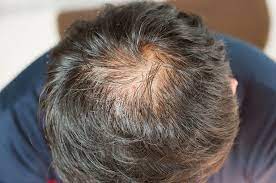The health of your doe herd is paramount for any successful deer farming operation. It’s important to be aware of the risks and signs of health issues that may crop up in your herd so that you can catch them early and address them before they become more serious problems. That’s why it’s essential to know how to properly conduct a doe health screening. In this blog post, we’ll discuss the basics of conducting a doe health screening. From what equipment you need to what parameters you should look out for, we’ll help you create a comprehensive plan for keeping your doe herd healthy and happy.
Doe Health Screening
A doe health screening is an important part of deer management. It helps to identify potential health problems in the herd and allows for early intervention. The following are some tips on how to conduct a doe health screening:
1. Schedule the screening during the cooler months when deer are less active. This will make it easier to catch and handle the deer.
2. Make sure you have enough help to catch, restrain, and release the deer safely.
3. Use a calm voice and gentle handling to avoid stressing the deer.
4. Take note of any physical abnormalities or signs of illness/injury. Record these in a log for future reference.
5. If possible, take samples (e.g., blood, feces) for further testing by a veterinarian.
By following these tips, you can conduct a successful doe health screening that will benefit the overall health of your deer herd!
NYC doe health screening online
The NYC Department of Education (DOE) offers a health screening service for students in grades K and 12. The service is available online and can be accessed through the DOE website.
The nyc doe health screening includes a physical examination, vision, hearing, and blood tests. The physical examination is conducted by a licensed physician and includes a height, weight, and blood pressure measurement. The vision test is conducted by an ophthalmologist or optometrist and includes an assessment of the student’s visual acuity and refractive error. The hearing test is conducted by an audiologist and includes an assessment of the student’s hearing threshold level. The blood test is conducted by a certified laboratory and includes a complete blood count (CBC), lipid panel, fasting glucose level, and hemoglobin A1c level.
The NYC DOE health screening service is available for all students in grades K and 12. To access the service, please visit the DOE website or contact your school nurse.
Do health screening login
In order to conduct a Doe health screening, you will need to log in to the appropriate website. Once you have logged in, you will be able to access the necessary information and tools needed to complete the screening.
The first step is to enter your personal information. This includes your name, address, and contact information. You will also need to provide some basic information about your health history. This information will be used to determine if you are eligible for the health screening.
Next, you will need to select the type of screening that you would like to participate in. There are two types of screenings available: the blood test and the urine test. Each type of test has its own set of requirements that must be met in order for you to be eligible.
Once you have selected the type of screening that you would like to participate in, you will be given a list of instructions on how to complete the screening process. It is important that you follow these instructions carefully in order to ensure accuracy.
After you have completed the screening process, you will be given a report detailing the results of your screening. This report will include any abnormal results that were found during the testing process. If any abnormality is found, it is important that you follow up with your doctor as soon as possible for further testing and treatment.
doe health screening questionnaire
A health screening questionnaire is a great way to keep track of your doe’s health and identify potential problems early on. Here are some questions to include in your questionnaire:
-When was the last time your doe was vaccinated?
-What is the current condition of her coat?
-Are her eyes bright and clear?
-Is her appetite normal?
-Does she seem lethargic or unusually tired?
-Is she urinating and defecating normally?




















+ There are no comments
Add yours